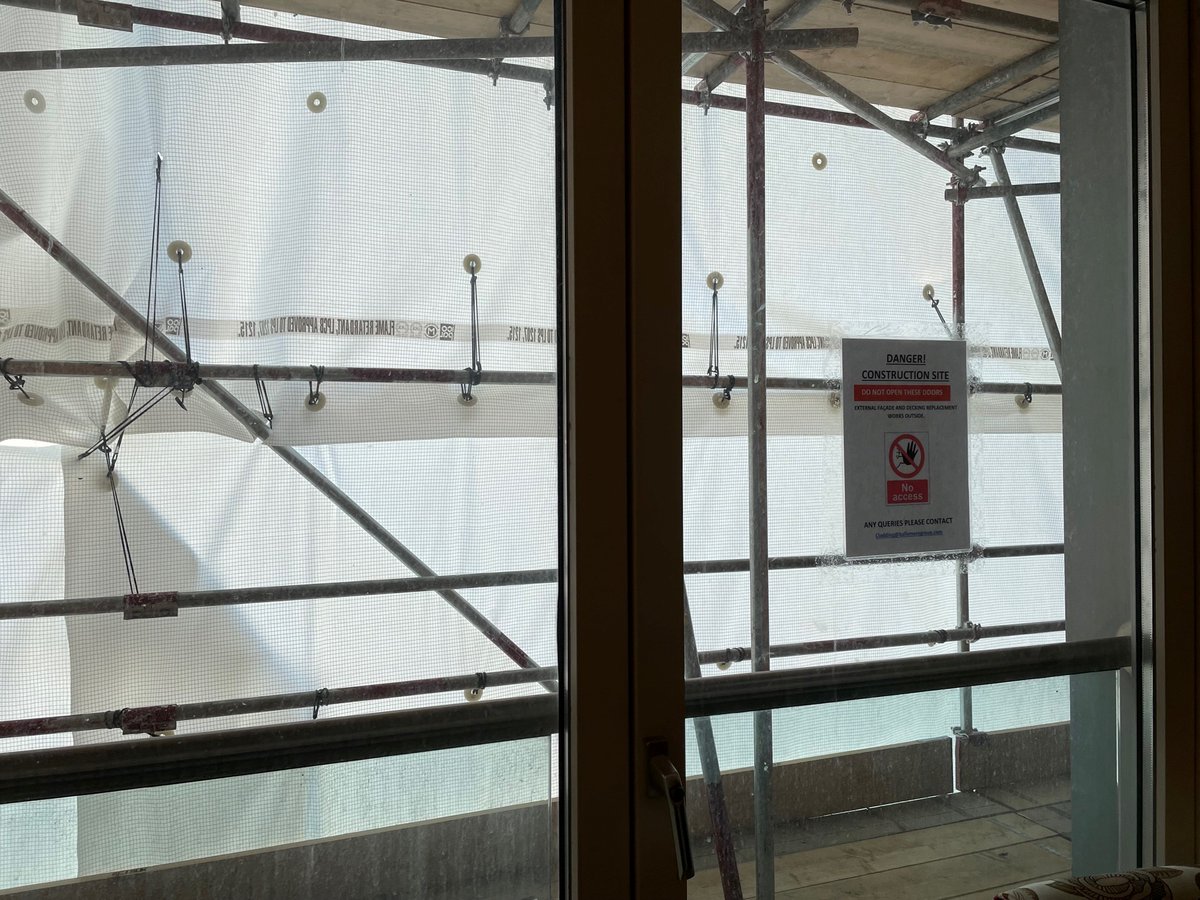
📢NEW REPORT into leaseholders living through #remediation in the #BuildingSafetyCrisis. Good news: we can take some basic steps to improve remediation for those where it is yet to start housingevidence.ac.uk/publications/l… (1/11) 

In many cases, leaseholders are not viewed by those responsible for remediation as being an important stakeholder in the process. There is little evidence that their voices and interests are included in decision-making (2/11)
Communication before works starts can be improved, with basic information (scope, schedule, & impact of work) provided & opportunities to meet different organisations involved in the project. This is not happening in all cases (3/11)
In planning works, there has not been enough focus on the experience of those living in the buildings. In future, the impact on liveability should be included as part of decision-making, with a demonstrable focus on minimising and mitigating negative impacts (4/11)
What is it like living through these works? As expected, remediation often has a negative impact on mental wellbeing, with particularly strong impacts related to noise, loss of privacy, and security and safety concerns (5/11)
Loss of light, the ability to ventilate homes, and the impact of fluctuating temperatures were also important. In many cases, it was not clear why certain materials or choices had been made, nor that the impact on those living in buildings was considered (6/11)
Many leaseholders felt that contractors lacked awareness that they were working on occupied buildings. There were reports of smoking on site, unnecessary noise, staring into people's homes & rubbish being left outside. Simple adjustments to site practices can improve this (7/11)
It is essential to improve communication during works and for responsibilities for communication to be clear. Leaseholders wanted to see more frequent and detailed information, including what work was carried out, when, and in what parts of the building (8/11)
Provide more fine-grained information can help people plan around disruption and restores some control to individuals living through works. Delays were common, but it is important to be transparent about this and keep timeframes updated (9/11)
Thank you to the Crook Public Service Fellowships @SheffSocScience and @housingevidence @esrc for funding this work. And thank you to leaseholders who took part, many of whom were motivated to use their own experiences to try and improve things for others in the future (10/11)
The good news is that there are a few simple steps that we can take to improve #remediation in the future. New thread coming soon setting out our key learning on promoting good practice in future #BuildingSafetyCrisis remediation works (END)
• • •
Missing some Tweet in this thread? You can try to
force a refresh





